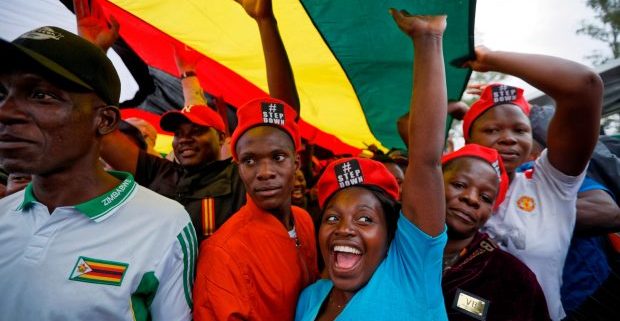Zimbabwe can become an economic powerhouse again, says CDC chief
As recently as the mid-1990s, Zimbabwe was considered the economic powerhouse of Southern Africa.
Today when you visit the country, as I did last week, all around you is evidence of more than two decades of misrule. Two decades where any attempt to develop a coherent economic policy was swamped by political self-interest and a desire to right the wrongs, both actual and perceived, of Zimbabwe’s colonial past.
As you drive thorough the capital of Harare, rows of derelict factories and warehouses stand in place of a once vibrant and growing manufacturing base. You see long lines of ordinary people queuing at banks to withdraw their own dollars from their own bank accounts. You see crowds of young and old standing roadside, desperately trying to sell bags of potato chips and phone cards to passing motorists; anything to scrape by on.
During my visit, I met with business people, bankers, diplomats and policy makers. Over and over again, I heard about the challenges Zimbabwe faces. There was the need for multilateral finance and an end to sanctions, the need to solve the issue of land ownership to provide clear and transferable title. There was the need to run a responsible fiscal policy, and the need to fix the foreign exchange from which a dollar shortage has produced three parallel values for the same currency, depending on how you access it.
Solving any one of these issues is complex and will take time. Solving all of them within a reasonable timeframe is a frankly daunting task.
Yet, what you feel most of all from visiting Zimbabwe today is a huge sense of optimism, a spirit born out of a change of government at the end of 2017. With this change emerges the current belief that a new leadership, despite many familiar faces, can bring meaningful reform to the country. There’s a sense that the focus may finally shift from political infighting towards the delivery of a responsible economic policy aimed at improving the lives of ordinary people. There is a hope that a new President will seize the opportunity to carve out for himself a legacy as the man who transformed Zimbabwe into a modern, democratic, outward-looking country.
Despite the problems of the last twenty years, this country still enjoys advantages many African countries can only imagine. Zimbabwe is rich in natural resources. Gold, diamonds and other metals are in abundance. The soil forms some of the most fertile agricultural land in the world. And there’s infrastructure. The roads are potholed, but they are there. The railways turn to rust, yet continue to function, and there’s power enough to build on.
Most importantly, Zimbabwe has Zimbabweans, with their enviable work ethic and a university system that produces thousands of new engineers, accountants and doctors every year. More are graduating than the economy can absorb. A diaspora of two to three million remit some US$1 billon per year, and many are anxious to return home and help drive their country’s recovery. If the new government delivers on its promise to create jobs through enlightened pro-business policies, Zimbabwe will be one of the great investment success stories of the next decade. What the country needs is capital, and it needs the capital now.
CDC’s history in Zimbabwe dates back to 1949. We invested in the Kariba Dam, a project that even today provides power to Zimbabwe and Zambia. Subsequently, we helped develop some of the most important agricultural projects in the country. We funded the first Zimbabwean venture capital fund, and today have around US$17 million invested in 14 small and medium-sized enterprises through our support for the Takura private equity fund, the first of its kind in Zimbabwe. We’re now taking practical steps to see what more we can do, whether that be talking to local banks about supporting them and their customers, or listening and learning from the local private sector to better understand its needs.
It is perfectly understandable for mainstream investors to wait and see, to hold back until the political and economic picture is more certain. But it is our job as a development finance institution to take risks in pursuit of development outcomes. In Zimbabwe, that means being a first mover. It means providing the capital quickly to rehabilitate derelict factories, improve farmland productivity, leverage Zimbabwe’s human capital, and return Zimbabwe to the world as the powerhouse it once was and can be once more.
Source: DevelopmentFinance






Leave a Reply
Want to join the discussion?Feel free to contribute!